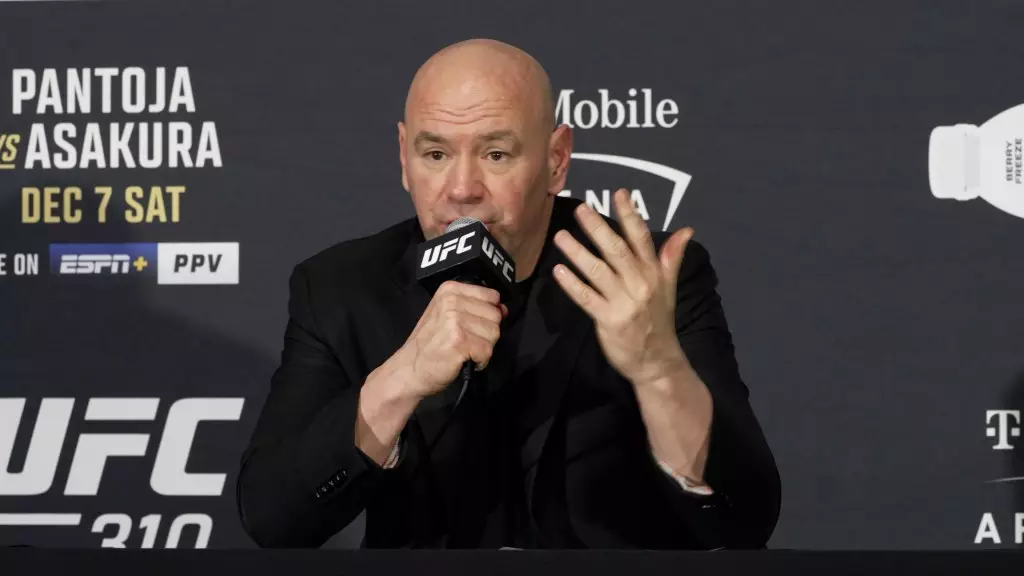UFC CEO Dana White recently found himself navigating turbulent waters surrounding bantamweight champion Merab Dvalishvili during UFC 310 fight week. A series of incidents showcased Dvalishvili’s fiery temperament, leaving White in a quandary about how to manage it effectively going forward. The Las Vegas event revealed glimpses of the fighter’s unpredictable nature, particularly during his interactions with his future title contender, Umar Nurmagomedov.
Prior to the UFC 311 press conference, tensions escalated as Dvalishvili and Nurmagomedov had a heated exchange backstage at the MGM Grand Garden Arena. In an effort to mitigate the situation, UFC officials strategically placed Dvalishvili further from Nurmagomedov during the on-stage presser. However, the shouting matches that ensued raised questions about whether such antics were mere promotional strategies or signs of deeper issues.
Dvalishvili’s behavior wasn’t solely confined to his rivalry with Nurmagomedov; it also extended to a disturbing incident involving a fan following the UFC 310 prelims. Serving as a cornerman for teammate Aljamain Sterling during his bout against Movsar Evloev, Dvalishvili found himself restrained by security after a confrontation with an audience member. Adding to the chaos, his fellow cornerman, Dennis Buzukja, was captured on video engaged in the uneventful act of punching the fan.
This series of outbursts not only invited scrutiny from fans and commentators alike but also left White grappling with the repercussions. In a post-fight news conference, White likened Dvalishvili’s volatility to that of Sean Strickland—albeit without the latter’s verbal flair. His comments implied that while fighters exist within an inherently chaotic environment, managing such incidents remains a complex undertaking for the promotion.
White’s comments about Dvalishvili’s recent behavior suggested a reluctance to delve into disciplinary actions, discussing the temperament of fighters and the resulting ramifications. “You can’t keep fighting with fans,” he noted, hinting that repeated instances of chaos could bear financial consequences. However, he also acknowledged that, as part of a sport that thrives on conflict, unpredictable moments are almost par for the course.
The UFC president left observers speculating about whether there would be any official repercussions for Dvalishvili, as no fines or charges had been confirmed at the time of reporting. White’s indication of accountability for fighters feels almost paradoxical, given that the very nature of the UFC thrives on drama and rivalry. In essence, Dvalishvili’s conduct, while concerning, also aligns with the hyper-competitive and often explosive atmosphere that defines mixed martial arts.
Navigating the storm that is Merab Dvalishvili will require White and the UFC to expertly balance the line between preserving the excitement that fuels the sport and ensuring that fighter interactions, both inside and outside the octagon, align with a standard of professionalism. As UFC 311 approaches, it remains to be seen how Dvalishvili’s demeanor will evolve—or if it will continue to be a source of contention for the organization.

